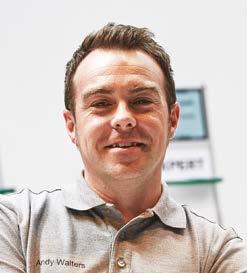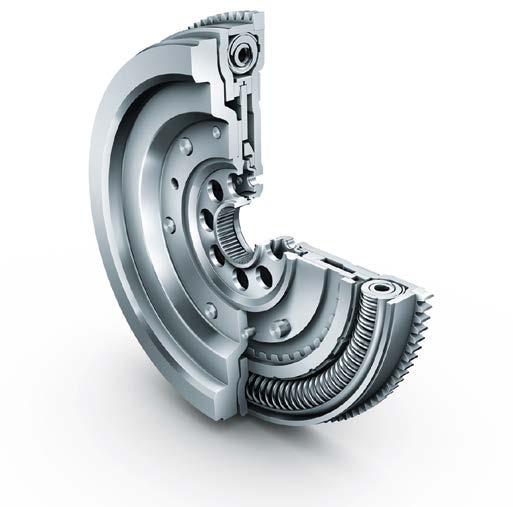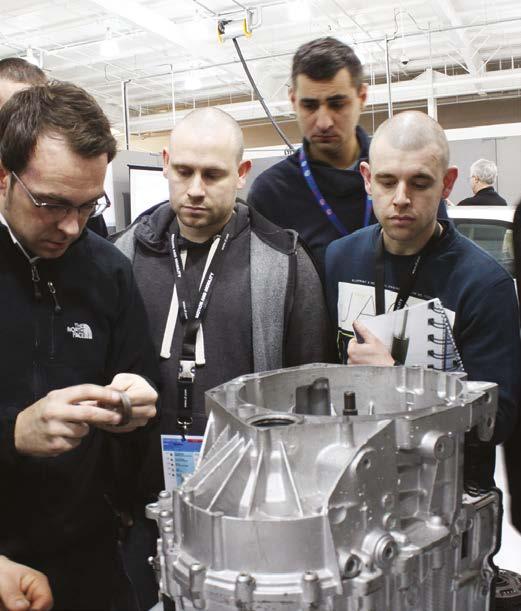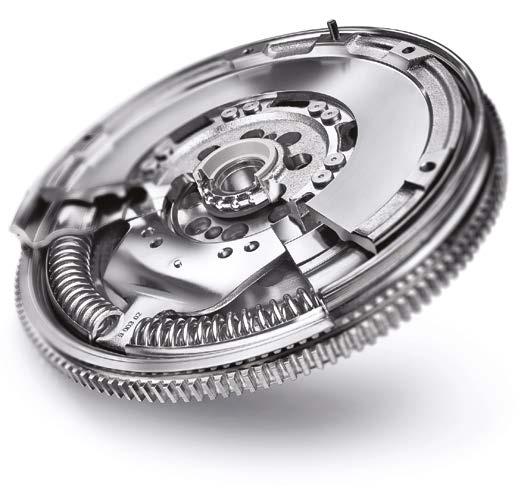
5 minute read
REPXPERT interview: DMF business

An interview with Schaeffler REPXPERT, Andy Walters
Andy Walters, a self-professed golf obsessive and Villa fanatic, joined Schaeffler in July 2013 as a Technical Trainer under the wing of the company’s long-serving technical expert, Malcolm Short. His arrival coincided with the launch of the first LuK RepSet 2CT dry double clutch kit, along with the accompanying IMI certified training so garages could learn how to carry out the repair. According to Andy, the whole topic was ‘mind blowing’ and a ‘baptism of fire for a newbie’!
However, it was clearly a subject he quickly got to grips with as now, eight years on, Andy is not only still one of Schaeffler’s renowned REPXPERT technical training team, but he is also now the Northern Sales & Key Accounts Manager. Andy takes up the story: “Although in 2013 much of our LuK training was, and still is, focused on Dual Mass Flywheels (DMF), the double clutch system was just coming over the horizon, which is why, as a new starter, it was good to get stuck into the latest technology from the get go.

“After three years as a technical trainer, I was promoted to become one of the company’s territory managers just prior to the Automechanika Birmingham exhibition in 2016, which in turn provided one of the first opportunities to really showcase the Schaeffler REPXPERT programme and raise the importance of high quality training to a mass audience of technicians – and they couldn’t get enough of it!
“Nowadays, in order for workshops to be able to compete with vehicle manufacturer (VM) franchised dealers, and for the long-term health of the independent aftermarket, training has never been more important. As a result, the REPXPERT service concept has become a prominent part of Schaeffler’s offering and, for me, the best thing about it is the sheer quantity and quality of technical information that it includes.
“Some workshops really embrace it, using it not just for the fitting tips and advice, but also to find labour times, torque settings and to use the vehicle identification function etc., so it’s really frustrating when I speak to technicians that haven’t signed up for it, especially when it’s totally free!
“As we begin to navigate the post-pandemic landscape, it’s incredible to see how the rate of change has accelerated, as all the talk is now about a future that will be dominated by electric vehicles (EV) and how that will impact the aftermarket.

such as Schaeffler, with its chassis development programme and EV technology investment, there are some great opportunities for workshops that are willing to embrace the changes, and they’ll be the ones that will survive and thrive in the years to come. In fact, I think there is so much out there in the way of support from suppliers and distributors, that if I had the means, I’d open my own garage!
“However, with all of the potential that an EV future will bring, workshops also can’t afford to take their eyes off the present, because despite that fact that the internal combustion engine is on the way out in terms of the plans of the VMs, they remain very much at the centre of the workshop today, and will do for some years to come, which brings us back to the subject of DMFs.
3 key questions to ask before DMF replacement
“If you were to ask me, or any of my fellow REPXPERTs, what our biggest frustrations are, it would be the underappreciation of what a DMF does and how, when it’s eventually replaced, the reason why it’s worn isn’t usually thought about or addressed. “The fact is that the DMF is an amazing piece of engineering that has been in volume production since 1985. It allows VMs to manufacture the smaller, more efficient engines that enable them to meet increasingly strict global emissions targets. This is because the DMF is designed to absorb the vibrations that these small units produce in comparison to larger or heavier engines, which inherently run more smoothly. They are, incidentally, also designed to last for the typical life of the vehicle.
“Therefore, if a workshop is presented with a vehicle that they suspect requires a DMF replacement, they should ask three key questions and also carry out one particular action. The questions that need to be asked are: What’s the vehicle’s mileage? What has the vehicle been used for? What are the reasons behind you believing you need to change the clutch and flywheel? The required action is to run an engine diagnostics check. These processes should provide technicians with the facts they need to help them understand why the DMF has prematurely worn and whether they need to resolve an underlying fault first. They can also then give the vehicle owner some helpful preventative advice, rather than simply replacing the DMF and running the risk of the same issue occurring because the root cause has not been diagnosed.
“By applying these principles, workshops can save themselves, and their customers, time, inconvenience and money, which can only be good for the reputation of the business and its staff.
“Following the Government’s lifting of the coronavirus restrictions, this is a message that we are looking forward to taking out on the road, as we start visiting workshops and begin to participate in live events such as AutoInform Live in November, when the REPXPERT team will be out in force delivering the high quality technical training we specialise in, and that technicians find invaluable.”











